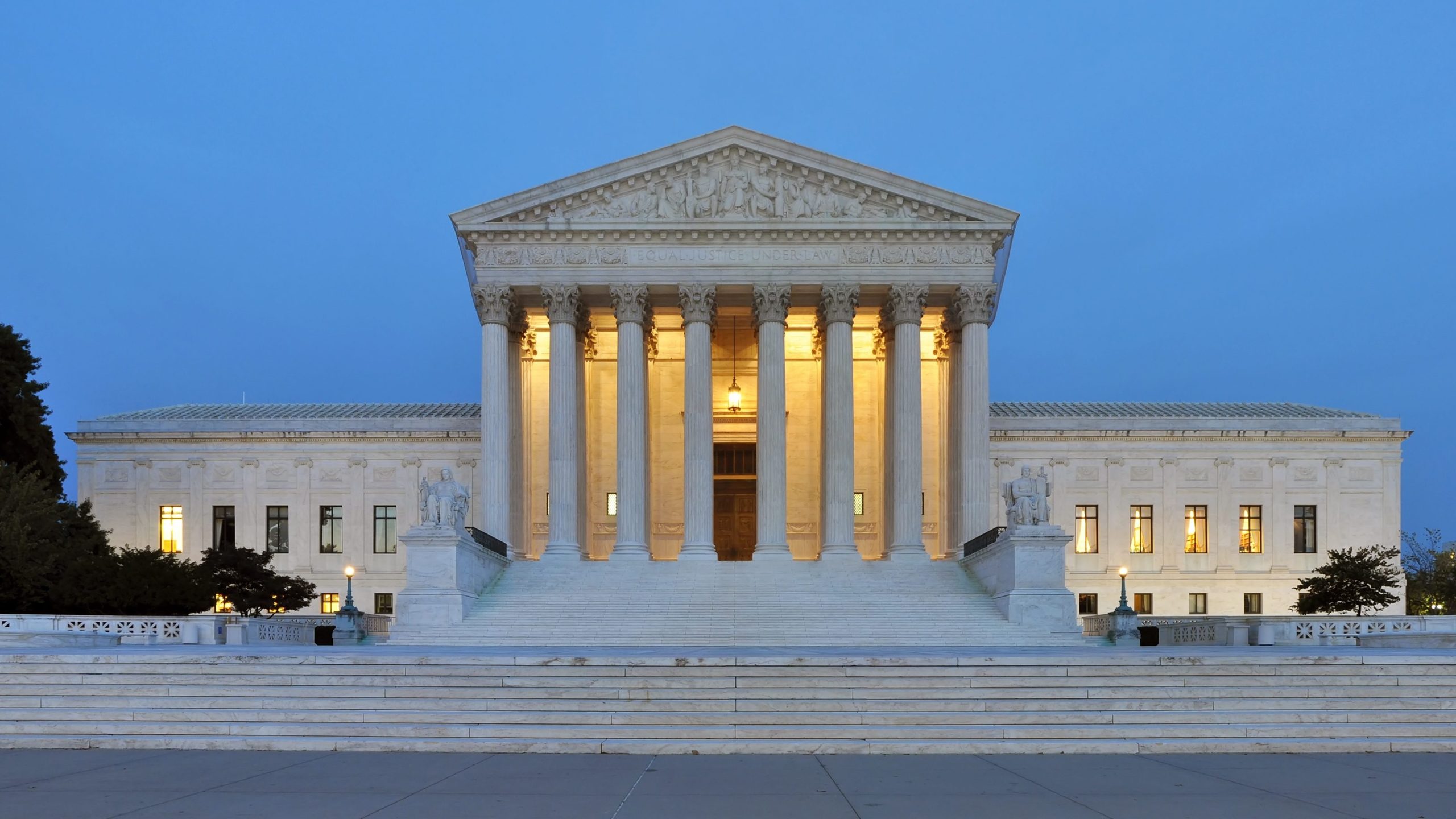Alabama Democratic Sen. Doug Jones said from the reports he’s seen he’s encouraged that the U.S. Supreme Court will uphold the Affordable Care Act, which is being challenged again by Republicans who want to repeal President Barack Obama’s landmark 2010 healthcare legislation.
The court on Tuesday heard opening oral arguments in the case, which Alabama Attorney General Steve Marshall joined along with other state Republican officials, arguing the law should be struck down as unconstitutional.
“You can sometimes read tea leaves a little bit, so I’m encouraged,” Jones said of reports he’s read detailing the hearing, speaking to APR on Thursday.
Plaintiffs argue that the portion of law, known as Obamacare, which mandated people buy health insurance or pay a tax, should be deemed unconstitutional. The lawsuit argues that once that portion is found unconstitutional, the rest of the law should be struck down as well.
If the ACA were struck down, at least 122,000 Alabamians and 21.1 million nationally would lose health coverage, according to a recent study by the Urban Institute. Trump made the ACA’s repeal a central part of his 2016 campaign and has continued to call for its demise, which would include the removal of protections for those with pre-existing conditions and portions of the law that allow young adults under the age of 26 to stay on their parents’ health insurance plans.
Chief Justice John Roberts and Justice Brett Kavanaugh both signaled during Tuesday’s hearing that they didn’t believe the plaintiffs’ arguments that the individual mandate couldn’t be severed from the law, leaving the other protections and benefits Congress wanted left alone still standing. With those two conservative justices siding with the court’s liberal judges on that matter, a majority of the court seemed likely to allow the remainder of the law to remain.
“You can severe that. You can do a couple of things,” Jones said. “I’m hopeful that the bulk of the ACA will remain intact because it gives everybody incentive to try to do those things necessary to get expanded Medicaid, to get more people on health insurance, to get good, accessible, affordable health care. It will settle the marketplace down.
Jones said there’s been much uncertainty since the law was passed, but if the bulk of it could be saved — protections for pre-existing conditions, subsidies to help people pay for health care — it could be used as a framework to see what’s working and what’s not.
“And to work together to try to get this thing done because the goals are the same: affordable, accessible health care,” Jones said.
Jim Carnes, policy director at Alabama Arise, a nonprofit advocacy organization for low-income people, told APR on Tuesday that it’s too early to tell what the court’s outcome may be, but that he’s also encouraged by the early signs.
“The severability issue would really take care of it if they move in that direction,” Carnes said. “So I’m hopeful, but we’re far from out of the woods.”
Carnes said if the court were to strike down the law, the most immediate impacts to Alabamians would be that approximately 120,000 of the 160,000 who buy health care through the exchange, made possible by the law, would lose the subsidies that help them afford the care, and would be unable to make up the difference themselves, thereby losing coverage.
“That, in turn, has an impact not only on those people and their families but on the healthcare system itself,” Carnes said. “That would mean that the health care providers are providing care to folks who don’t have a means of paying, and that puts further strain, particularly on our rural health care system.”
The vast majority of Alabama’s rural hospitals operate in the red already, Carnes said, and chipping away at their financial support would only mean the threat of more hospital closures.
Striking down the law would also impact people who do not buy health insurance through the exchange, Carnes said, including the law’s requirement that health insurance providers can’t deny coverage because of pre-existing conditions.
“And we all benefit from the removal of the annual and lifetime benefit caps,” Carnes said, adding that before the law, people with chronic medical conditions and those involved in an accident could quickly hit their insurance policy’s lifetime cap.
Previous court challenges and attacks by Congressional Republicans were unsuccessful in killing the ACA altogether, and even if the Supreme Court sides with defenders of the law, Carnes doesn’t think those attacks will stop.
“I think there will always be a group of people who either really want to turn it back, or who want to be seen attempting to turn it back,” Carnes said.
When Congress in 2017 made a concerted effort to repeal the law, the effort failed due to a groundswell of support for the law, Carnes said.
“With every year that goes by with the law in place, more and more people have experienced the benefits of the law,” Carnes said. “It’s constituency continues to grow.”
The court is expected to make a decision in the case sometime around midsummer.

















































